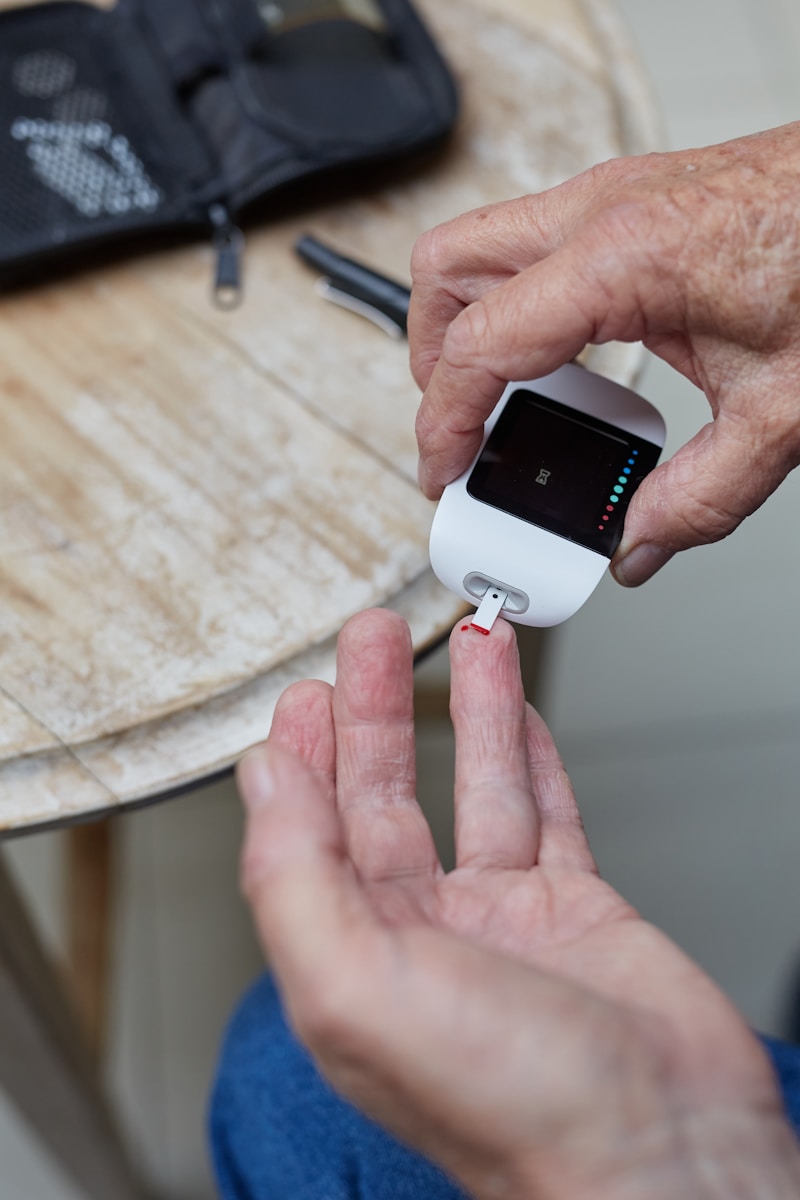Glucose Monitors for Non-Diabetics: The New Wellness Trend
In recent years, the use of glucose monitors has extended beyond individuals with diabetes to a broader audience interested in health optimization. Monitoring glucose levels for metabolic insight forms a crucial part of a new wellness trend among non-diabetics. This article explores the phenomenon, investigates its benefits, and contemplates the possible implications of widespread usage of glucose monitors in health and wellness.
The Rising Popularity of Glucose Monitoring in Wellness
Understanding Glucose Monitoring
Glucose monitors provide continuous data about blood sugar levels. Traditionally vital for people managing diabetes, these devices measure real-time glucose levels through sensors worn on the skin, providing data to help manage food intake and activity levels effectively.
Why Non-Diabetics Are Choosing Glucose Monitors
Non-diabetics have begun adopting glucose monitoring to better understand how diet, exercise, sleep, and stress affect their metabolic health. The wearables market has seen growth in glucose sensors owing to individuals seeking personalized data for enhancing wellness, weight management, and athletic performance outcomes.
Influence of Trendsetters and Biohackers
Prominent influencers and biohackers are significantly contributing to this trend by promoting self-quantification techniques. These individuals often share their glucose tracking experiences on various social platforms, motivating their audiences to embark on similar health explorations.
Potential Benefits of Glucose Monitoring for Non-Diabetics
Enhanced Dietary Choices
Continuous glucose monitoring provides insights into how specific foods impact blood sugar levels. Non-diabetic users leverage this data to make informed dietary choices, aiming for stable blood sugar levels, which can aid in reducing fatigue and enhancing mental clarity.
Optimizing Physical Performance
Athletes and fitness enthusiasts utilize glucose data to refine their training programs and nutrition strategies. By tracking glucose fluctuations, they can optimize pre and post-workout meals, ensuring optimal energy utilization and recovery.
Improving Overall Wellness
Beyond diet and exercise, glucose monitors serve as tools for monitoring overall health signals. By observing patterns related to sleep, stress, and physical activity, users can make lifestyle adjustments that promote better health outcomes.
Challenges and Considerations
Understanding Data Complexity
Interpreting glucose monitoring data requires some understanding of metabolic processes. For non-diabetics, learning what constitutes healthy glucose levels and how to respond to data spikes can be challenging without professional guidance.
Device Cost and Accessibility
Continuous glucose monitors can be expensive, which might be prohibitive for many who wish to incorporate this tool into their wellness routines. Consequently, if the trend continues to grow, there is a challenge to make these devices more affordable and accessible.
Potential Data Overload
With the abundance of data that comes with continuous monitoring, individuals may experience information overload. It is important to focus on actionable insights rather than getting lost in minute details that may not significantly impact wellness goals.
Future of Glucose Monitoring in Wellness
Technological Advancements
As technology continues to evolve, we can expect more sophisticated glucose monitoring devices with enhanced functionality and integration capabilities. These advancements will make glucose tracking more efficient and user-friendly.
Integration with Other Health Metrics
The future of health monitoring devices lies in their ability to interconnect multiple metrics. Integrating glucose data with other health metrics such as heart rate and physical activity will offer a comprehensive view of personal health, leading to more holistic wellness strategies.
The Role of Healthcare Providers
As the use of glucose monitors by non-diabetics grows, healthcare professionals will need to adapt by providing education and guidance to help individuals interpret their data effectively and use it to support healthier lifestyles.
The adoption of glucose monitors by non-diabetics represents an exciting trend in the realm of health and wellness. By offering personalized insights into metabolic health, these devices empower users to make informed lifestyle choices. As technology advances and societal interest in health optimization continues to rise, glucose monitoring could become an integral component of modern health management strategies.
To stay ahead in your wellness journey, consider exploring the world of continuous glucose monitoring. Whether it’s optimizing your diet, enhancing your athletic performance, or understanding how everyday factors impact your overall health, glucose monitors can be a valuable tool. As always, consult healthcare professionals to tailor your approach to fit your individual needs.
